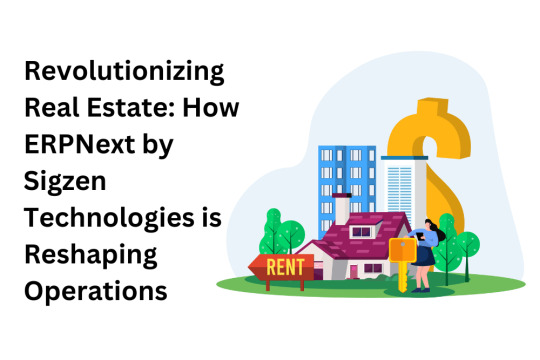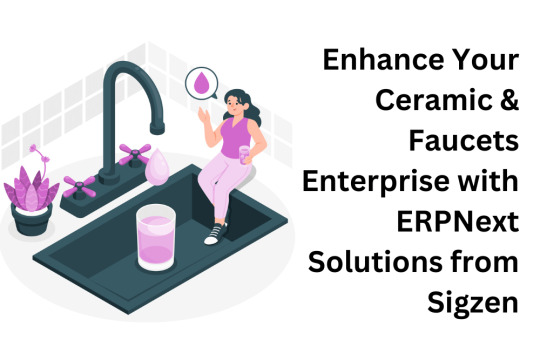#ERP and digital transformation
Explore tagged Tumblr posts
Text
What is ERP? Overview, Key Functions & Business Benefits
In today’s fast-paced business landscape, organizations need robust tools to manage their resources efficiently and drive growth. Enterprise Resource Planning (ERP) systems have emerged as a transformative solution that streamlines processes, enhances collaboration, and provides actionable insights. In this article, we will delve into the world of Enterprise Resource Planning, exploring its key…
#AI in ERP#Benefits of ERP implementation#Business Automation#Cloud ERP#Digital Transformation#Enterprise Resource Planning#ERP#ERP and digital transformation#ERP Benefits#ERP Features#ERP for Businesses#ERP Implementation#ERP Software#ERP Solutions#ERP System#How does ERP work?#Key functionalities of ERP systems#What is ERP#Why businesses need ERP
0 notes
Text
What major advantages does a business have by incorporating digital payments through SAP?
SAP guarantees business continuity, instant analytics, speed of automation of financial functions, confidentiality of work with data and cut costs extensively enabling companies achieve their strategic objectives while remaining fully compliant to the existing laws in the various geographies they operate in. SAP supports multiple payment methods (credit cards, digital wallets, BNPL, etc.), enabling businesses to offer customers flexibility and convenience. Smooth and secure payment processes enhance customer satisfaction and loyalty.
#sap digital transformation#SAP Digital Payments#SAP Fintech#SAP Solutions#sap erp solutions#business one sap hana
2 notes
·
View notes
Text
Optimizing Real Estate Operations: How ERPNext by Sigzen Technologies Transforms the Industry
In the bustling world of real estate, where every minute and transaction matters, having a robust and versatile management system isn’t just beneficial,it’s essential. ERPNext, designed to revolutionize the way real estate businesses operate, is a game-changer. This cloud-based ERP solution, meticulously tailored to meet the diverse and demanding needs of the industry, integrates every facet of…

View On WordPress
#Cloud ERP#Digital Transformation#ERPNext#Financial Analytics#Lease Management#operational excellence#Property Management#Property Portfolio#RealEstate Innovation#RealEstate Technology
2 notes
·
View notes
Text
Transformative Digital Classrooms Powered by AI Technology
Mafatlal Technologies offers smart digital classroom solutions that enhance teacher productivity and student engagement. With AI-assisted lesson tools, interactive content, and seamless access across devices, the platform supports hybrid, inclusive, and experiential learning environments.
0 notes
Text
Expert Odoo Customization Services

🚀 Unlock the Full Power of Odoo with Customization That Fits YOUR Business 💼✨
Tired of out-of-the-box solutions that don’t quite fit? With our expert Odoo Customization Services, you get:
✅ Tailored Workflows ✅ Custom Modules & Features ✅ Seamless Integrations ✅ Scalable Solutions for Growth
Whether you're in manufacturing, retail, services, or eCommerce — we shape Odoo around your needs.
👉 Visit our website to explore how we can transform your ERP experience: https://www.candidroot.com/odoo-customization
#Odoo #OdooCustomization #ERPsolutions #BusinessAutomation #DigitalTransformation #OdooExperts #CustomERP #BusinessGrowth
#odoo#odoo customization#erp solutions#business automation#digital transformation#odoo experts#custom erp#business growth#erpsoftware#erp system
0 notes
Text
Struggling with scattered data, manual workflows, and outdated systems? KPIS Pvt. Ltd. is a leading ERP software development company in India, dedicated to building intelligent, scalable, and secure ERP solutions tailored for startups, SMEs, and enterprises. Our ERP systems integrate core business functions such as inventory, accounting, HR, CRM, and supply chain into one unified platform, helping businesses boost efficiency, reduce costs, and make data-driven decisions.

We specialize in building scalable, secure, and feature-rich ERP systems tailored to diverse industry needs. Whether you're in manufacturing, retail, logistics, healthcare, or education, our end-to-end ERP development services are designed to align with your unique business processes.
Looking for a reliable ERP development partner?
With a highly skilled team and modern tech stack, we build ERP systems that are scalable, secure, and intuitive. Hire our expert developers to design and deploy a custom ERP system that perfectly fits your business goals.
Ready to take your business to the next level with intelligent ERP solutions? Partner with KPIS Pvt. Ltd. and gain access to a dedicated team of skilled ERP developers who understand your industry challenges and offer innovative, cost-effective solutions.
#ERP#restaurant erp#erp software development company#erp system#erp software#web development#app development#application development#technology#game development company#artificial intelligence#internet of things#digital transformation
0 notes
Text

LQMS offers LIMS ERP for testing and calibration labs in UAE and GCC to optimize lab operations. Explore our smart solutions. Book demo today at lqms.net.
1 note
·
View note
Text
SerpentCS to Highlight Innovative ERP Solutions at Gitex Europe 2025

Berlin, May 2025 – Serpent Consulting Services Pvt. Ltd. (SerpentCS), a globally recognized ERP solutions provider since 2011, is preparing to showcase its advanced digital transformation technologies at Gitex Europe 2025. Scheduled for May 21 to 23, 2025, at Messe Berlin, this leading tech and startup event will bring together over 40,000 tech professionals, 1,200 exhibitors, and more than 1,000 startups from over 100 countries to explore innovations in AI, Big Data, Cloud, Cybersecurity, and beyond.
A Legacy of ERP Expertise
SerpentCS, an ISO/IEC 27001:2013 certified and CMMI Level 3 organization, excels in delivering end-to-end ERP solutions, including consulting, development, implementation, migration, integration, and support. With additional capabilities in software testing and quality assurance, the company has earned the trust of businesses and IT firms worldwide. Boasting over 1,000 successful ERP implementations across 190+ countries, SerpentCS operates with a team of 200+ experts and a presence in 7+ countries.
Advanced ERP Solutions at Gitex Europe 2025
At Gitex Europe 2025, SerpentCS will present its comprehensive ERP offerings, designed for industries such as Retail POS, Trading, Manufacturing, and Real Estate. These solutions emphasize seamless integration, customization, and automation to enhance business efficiency. By leveraging technologies like Odoo, ERPNext, SAP, .NET, Laravel, Flutter, DevOps, and Magento, SerpentCS provides scalable tools tailored to diverse industry demands.
Visitors are encouraged to stop by Booth Numbers H6.2-D02 and H6.2-D03 in Hall 6.2 to discover how SerpentCS is driving the future of digital business transformation.
Empowering Global Businesses
“Our participation in Gitex Europe 2025 demonstrates our commitment to transforming global business operations with innovative ERP solutions,” said Husen Daudi, Managing Director of Serpent Consulting Services Pvt. Ltd. “Our deep expertise in various technologies enables us to streamline processes, reduce inefficiencies, and support sustainable growth for organizations.”
Serving over 50 industries across Africa, Europe, the Middle East, and Asia, SerpentCS remains a trusted partner for scalable, future-focused ERP systems.
Join SerpentCS at Gitex Europe 2025
Gitex Europe 2025 provides a unique opportunity to engage with cutting-edge technologies and industry leaders. SerpentCS invites attendees to visit its booth at Messe Berlin – SOUTH ENTRANCE to experience its ERP solutions in action.
Event Details:
Date: May 21 – 23, 2025
Location: Messe Berlin – SOUTH ENTRANCE
Booth: H6.2-D02, H6.2-D03
About Serpent Consulting Services Pvt. Ltd.
Since its establishment in 2011, SerpentCS has grown into a global ERP consulting leader, delivering tailored solutions with a proven record of over 1,000 implementations worldwide. Renowned for its innovative approach, the company helps businesses thrive in an ever-changing digital environment.
For more information, contact:
Email: [email protected]
Phone: +91-90-3347-2982 | +91-98-7935-4457
Website: www.SerpentCS.com
Mark your calendars and join SerpentCS at Gitex Europe 2025 to explore the future of business technology!
#SerpentCS#Gitex Europe 2025#ERP Solutions#Digital Transformation#Odoo#ERPNext#SAP#Retail POS#Software Integration#Tech Event
0 notes
Text
NetSuite CRM Integration: Enhancing Customer Connections Across Your Business

Customer experience isn’t just about having a CRM, it’s about having one that truly connects the dots across sales, marketing, service, and commerce. In today’s world, a disconnected system isn’t just inconvenient, it holds teams back. NetSuite CRM Integration brings everything together on a single cloud platform, giving your teams the tools and visibility they need to build stronger relationships and drive better outcomes. When implemented right, it becomes the core of how your business connects with customers.
We help companies get the most out of NetSuite CRM with integration services that align with how you work—built around your processes, your people, and your goals. It’s not just about plugging in a system; it’s about making it work for you.
Why NetSuite CRM?
NetSuite CRM (Customer Relationship Management) is a part of the NetSuite ecosystem in general at the endpoint for managing each interaction across the customer lifecycle fully. With NetSuite CRM, from the first touch of marketing through on-sale support, everything comes under one umbrella to keep the continuity and visibility as well as actionable insights at every step.
Core Capabilities of NetSuite CRM Include:
Sales Force Automation: Make sure to use tools for lead-to-quote management, forecasting upsells, and order management in your pipeline. Automating these processes allows sales reps to concentrate on the high-value work of, well, selling.
Marketing Automation: Deliver, launch, and measure multi-channel campaigns accurately. Email marketing, web engagement — all covered in NetSuite CRM to get the right audience with the right message and measure ROI in real time;
Customer Service Management: Provide rapid and responsive case tracking services wrapped in knowledge bases & customer portals support. Having a unified view of customer history, product usage, and past interactions helps teams resolve issues faster and more effectively.
E-commerce Integration: NetSuite CRM is integrated with NetSuite SuiteCommerce and other platforms, providing for a frictionless exchange of data from your e-commerce store to its inventory, customer records, and finance systems.
The Power of Integration: Why It Matters
A CRM system is only as successful as its integration when in the context of your business. Thoughtfully, NetSuite CRM becomes a blockbuster for both customer insight and operational efficiency when at peace with your existing business environment.
Here’s what effective NetSuite CRM integration brings to the table:
1. A Unified Customer View
Combine data from marketing, sales, and service into one record to break down silos. That 360-degree view allows teams to see where customers have been, what they want today, and the opportunity going forward.
2. Process Automation Across Departments
NetSuite CRM automates the workflows for manual tasks, e.g., lead routing, follow-up generation, or support for a case in process. Lowering human error, faster operations, and a unified customer experience for your clients.
3. Real-Time Data, Real-Time Decisions
On cloud-native live data access, teams can quickly make data-driven decisions. Sales reps get real-time pricing or inventory updates on the fly; service jobs get to see what a customer recently ordered before responding to a ticket with the go.
4. Scalability and Flexibility
NetSuite CRM is designed to scale with you. NetSuite CRM grows along with you; it can be built for you as your operations grow — whether it be new territories, new products introduced, or a business model.
Codinix's Approach to NetSuite CRM Integration
As one of the top-rated NetSuite partners, we deliver the full suite of services, including integrating, customizing, and NetSuite CRM support, inside your environment.
Our services include:
CRM Strategy & Road Mapping: We start by mapping your business processes and customer journey to have a roadmap for NetSuite CRM to be in line with the goals from day 1.
Custom Configuration: No matter if it is sales workflows, marketing campaigns, or case management flowcharts—we set up NetSuite CRM to align with the actual way your teams operate.
Customer Service Management (CSM) Enablement: We will help you make the most of NetSuite's CSM module via support ticketing systems, customer portals, and knowledge bases that increase response times and customer satisfaction.
Ongoing Optimization: Post-deployment, we follow up with you to dial in the system, train your staff and tweak the solution for the ever-evolving business.
Is NetSuite CRM Integration Right for You?
If your organization fits in the following, you need integration of NetSuite CRM may be the next best step for you:
Disconnected data between sales, marketing, and service
Difficulty tracking customer interactions or case history
Manual, time-consuming processes for lead nurturing or support
Lack of visibility into campaign or sales performance
Plans to scale operations or adopt a more customer-centric approach
Final Thoughts
NetSuite CRM does not just centralize your customer information but also serves as a template for consistency, structure, and insight into every customer-facing function of your business. Leveraging the integration expertise from Codinix Technologies, the tool can be used in a manner that speaks directly to the way your business runs.
If you are targeting to enhance the efficiency of your operations, optimize the service delivery, or make data available in real time to your staff, NetSuite CRM integration with less friction and more clarity can help you.
#NetSuite#CRM#integration#Codinix#Business#ERP#salesforce#consultants#cloudsolutions#digital transformation#salesforce customization agency#salesforce customization#codinixtechnologies#salesforce customization services#clouds#NetSuite Customer Relationship Management
0 notes
Text
ERP Implementation Success: Key Steps for a Smooth Transition
Embarking on an ERP Implementation Success journey is both exciting and challenging for any organization. To achieve ERP Implementation Success, businesses must follow key steps, anticipate potential challenges, and apply effective strategies. From planning and vendor selection to data migration and training, this article explores the essential aspects of ERP implementation to ensure a smooth and…
#Business Efficiency#Business Transformation#change management#Data Migration#Digital Transformation#Enterprise Software#ERP Best Practices#ERP Challenges#ERP Implementation#ERP Success#Process Optimization#Project Management#System Integration#User Training#Vendor Selection
0 notes
Text

🚀 Hire Experts for AI-Enabled ERP Solutions – Future-proof Your Business! 🚀
#software#microsoft#ai#business central#digital transformation#artificial intelligence#erp system#crm software
0 notes
Text
Optimize Your Ceramic & Faucets Business with ERPNext Solutions by Sigzen
ERPNext offers an ideal solution for businesses in the ceramics and faucets industry, delivering a tailored, robust platform designed to streamline various operational processes. This powerful ERP software facilitates seamless management of inventory, production, sales, and procurement, while also providing comprehensive financial management tools. Its ability to integrate and automate these key…

View On WordPress
#business optimization#Ceramics Industry#Digital Transformation#ERP Software#ERPNext#Faucets Business#Financial Management#Inventory Management#Production Planning#Sales Distribution#Sigzen Technologies
2 notes
·
View notes
Text
A Partnership Elevated to the Next Level – Gissah Perfumes Expands Its Digital Transformation with BatchMaster ERP
Kuwait – (ARAB NEWSWIRE) — Middle East’s high-end perfume brand, Gissah Perfumes, and BatchMaster Software Pvt. Ltd. have come together once again, taking their partnership to the next level. This leading manufacturer of legendary perfumes is headquartered in Kuwait and successfully maintains a presence in multiple countries, including Saudi Arabia, Qatar, Oman, and Bahrain. Gissah Perfumes…
#BatchMaster ERP#BatchMaster Software Pvt. Ltd.#Cloud ERP#digital transformation#ERP for Fragrances#Fragrances#Gissah Perfumes#partnership#Perfumes
0 notes
Text
The Zakat, Tax and Customs Authority (ZATCA) in Saudi Arabia has set the compliance deadline for Wave 20 to 𝐎𝐜𝐭𝐨𝐛𝐞𝐫 𝟑𝟏, 𝟐𝟎𝟐𝟓. Businesses must integrate their invoicing systems with 𝐙𝐀𝐓𝐂𝐀’𝐬 𝐅𝐀𝐓𝐎𝐎𝐑𝐀 platform for real-time validation.
JRS Dynamics Info Solutions - Microsoft Solutions Partner, we specialize in seamless 𝐙𝐀𝐓𝐂𝐀 𝐏𝐡𝐚𝐬𝐞 𝟐 integration with 𝐌𝐢𝐜𝐫𝐨𝐬𝐨𝐟𝐭 𝐃𝐲𝐧𝐚𝐦𝐢𝐜𝐬 𝟑𝟔𝟓 𝐁𝐮𝐬𝐢𝐧𝐞𝐬𝐬 𝐂𝐞𝐧𝐭𝐫𝐚𝐥, ensuring your business stays 𝟏𝟎𝟎% 𝐜𝐨𝐦𝐩𝐥𝐢𝐚𝐧𝐭.
💼 Avoid penalties, business disruptions, and invoice processing delays! 𝐒𝐭𝐚𝐲 𝐚𝐡𝐞𝐚𝐝 𝐨𝐟 𝐜𝐨𝐦𝐩𝐥𝐢𝐚𝐧𝐜𝐞—𝐚𝐜𝐭 𝐧𝐨𝐰.
👉 𝐑𝐞𝐚𝐝 𝐨𝐮𝐫 𝐥𝐚𝐭𝐞𝐬𝐭 𝐛𝐥𝐨𝐠: https://jrsdynamics.com/zatca-phase-2-integration/
👉🏻 Get Your FREE Demo Today!
📧 𝐄𝐦𝐚𝐢𝐥: [email protected] 🌐 𝐕𝐢𝐬𝐢𝐭: www.jrsdynamics.com
#ZATCA#EInvoicing#SaudiArabia#KSA#Business Central#Tax Compliance#ZATCA Integration#Wave 20#FATOORA#ZATCA Implementation#ERP#Business Solutions#Digital Transformation#JRS Dynamics#Dynamics 365#Microsoft Dynamics 365#Software Company#Microsoft Partner
1 note
·
View note
Text
Expert Odoo ERP Implementation Services

🚀 Streamline Your Business with Odoo ERP Implementation!
Looking to automate workflows, boost productivity, and scale your operations seamlessly? Our Odoo ERP Implementation Services are designed to turn complexity into clarity.
✅ Custom module development
✅ End-to-end integration
✅ Data migration & training
✅ Post-launch support
Whether you're a startup or an enterprise, we tailor Odoo to fit your unique business needs.
👉 Learn more & get started today: https://www.candidroot.com/odoo-implementation
#Odoo #OdooImplementation #OdooERP #BusinessAutomation #ERPImplementation #DigitalTransformation #OdooExperts #TechSolutions
#odoo#odoo implementation#odoo erp implementation#odoo erp#business automation#erp implementation#digital transformation#odoo experts#tech solutions#erpsoftware#erp system
0 notes
Text

Accelon Technologies is your trusted SAP Business One Partner in Delhi, helping businesses simplify operations, enhance efficiency, and drive growth. Our expert team specializes in SAP Business One implementation, customization, and support to ensure seamless integration with your business processes. Whether you need ERP consulting, data migration, or industry-specific solutions, we tailor SAP Business One to meet your unique needs. With real-time insights, automation, and streamlined workflows, we empower businesses to make informed decisions and stay competitive.
#SAP Business One#SAP Business One Partner#SAP Business One Delhi#ERP Software#Business Automation#SAP Partner Delhi#Accelon Technologies#ERP Consulting#Business Growth#Enterprise Solutions#SAP Implementation#Cloud ERP#Small Business ERP#SAP Customization#Digital Transformation
1 note
·
View note